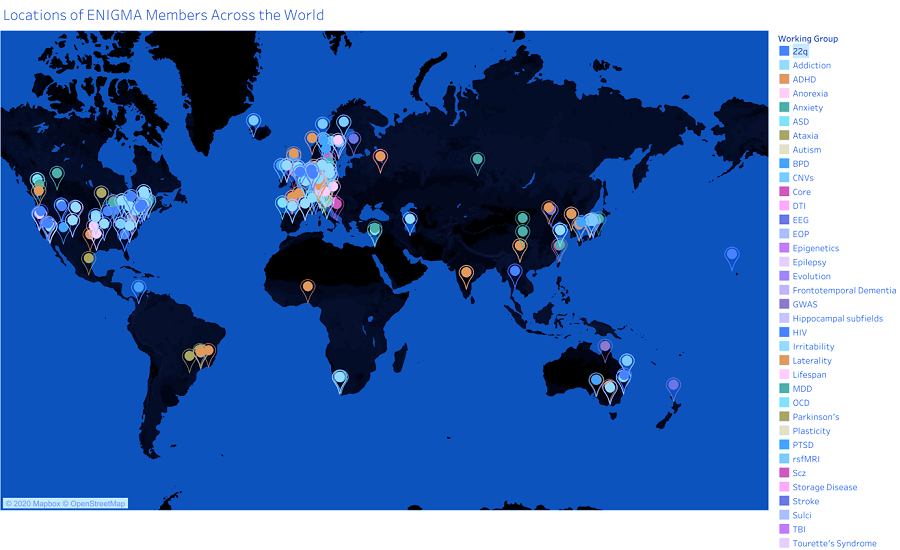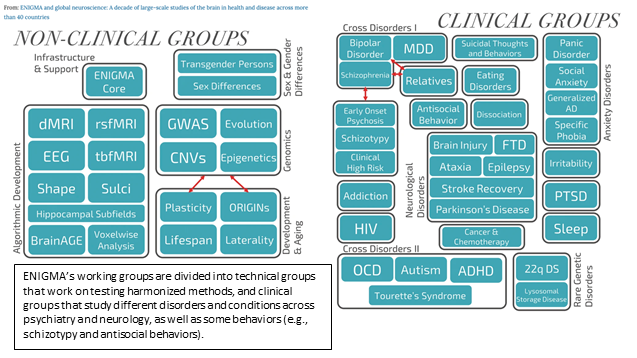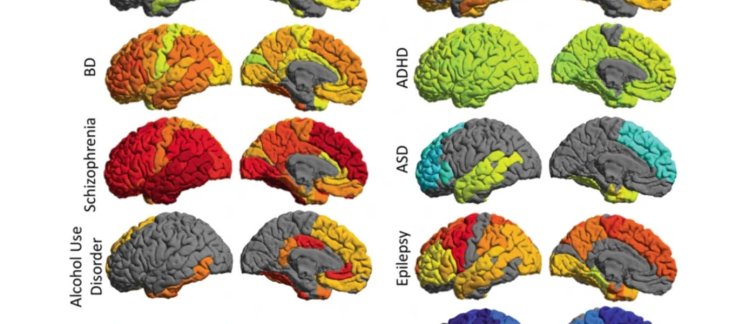With 50 active working groups, the ENIGMA consortium has several goals: create a network of like-minded individuals, interested in pushing forward the field of imaging genetics; ensure that promising findings are replicated; share ideas, algorithms, data, and information on research studies and methods; facilitate training, including workshops and conferences on key methods and emerging directions in imaging genetics. Figure 1 illustrates the working groups of ENIGMA and their worldwide distribution.

The review in Translational Psychiatry summarizes how ENIGMA was organized in working groups and highlights that these international efforts have yielded the largest neuroimaging studies to date in schizophrenia, bipolar disorder, major depressive d isorder, post-traumatic stress disorder, substance use disorders, obsessive-compulsive disorder, attention-deficit/hyperactivity disorder, autism spectrum disorders, epilepsy, and 22q11.2 deletion syndrome. It also describes the advantages of collaborative large-scale coordinated data analyses for testing reproducibility and robustness of findings, offering the opportunity to identify brain systems involved in clinical syndromes across diverse samples and associated genetic, environmental, demographic, cognitive, and psychosocial factors.
Interested in the work of the ENIGMA consortium in the last decade? And want to read about uncovering the genetic basis of the brain? Read the review in Translational Psychiatry here (with amongst others Odile van den Heuvel & Dick Veltman c.s.). Or get informed by the genetic basis of cortical structures in the ENIGMA Science article here (with amongst others Anouk den Braber c.s.). See also the article by Odile van den Heuvel et al. in Human Brain Mapping with an overview of five years of the ENIGMA Obsessive-Compulsive Disorder (OCD) working group here.

Read the publication in Translational Psychiatry 'ENIGMA and global neuroscience: A decade of large-scale studies of the brain in health and disease across more than 40 countries'.

